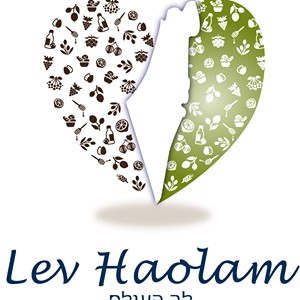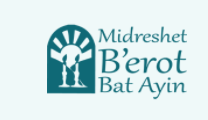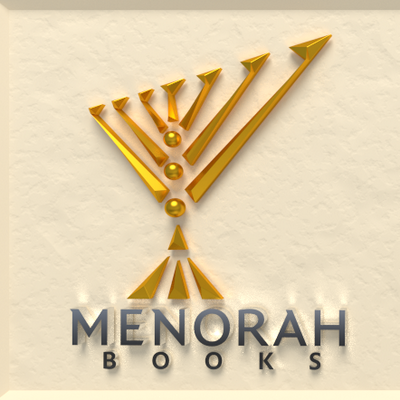Often I get asked this questions “What is the difference between Alchemist and Apothecary? And what does the Torah/Bible say? Many people do get them mixed up! So which one is found in the Bible/Torah and which one is not?
So Apothecary is found in many texts such as Exodus 30:25 ; 37:29 ; Eccl 10:1 and 1 Samuel 8:13. The term Alchemist is NOT in the Bible at all. Today the two are grouped together to mean the same but that is a mistake. The Apothecary is someone who makes natural medicine not only for its medicinal properties but also for its aroma.
תְּרוּפָה tᵉrûphâh, ter-oo-fa’; from רוּף ruf in the sense of its congener רָפָא rafa; a remedy:—medicine, to make medicine, a physician, a herbalist.
רָקַח râqach, ra-kakh’; a primitive root; to make perfume:—apothecary, compound, make ointment, anointing oil, prepare, spice, herbalist as in healer who make use of plants
רָקַח râqa, râka compounders of natural healing ointment; as a professional name, apothecarist, herbalist, mixer, perfumer.
They are also natural perfumers who also made the Holy anointing oil and the Holy Temple Incense. They were in fact the herbalists of the ancient world. The most famous apothecary medicine and perfume maker was Moses and later the Priest Aventus family who followed the same instructions given by G-d to Moses to make the Holy Incense of Ketoret that kept all of G-d people well and without health issues. It is well documented that Women as far as Jericho would have the aroma of Ketoret in their skin.The Israelites smelled really divine literally.
קְטֹרֶת qᵉṭôreth, ket-o’-reth; from קָטַר qâṭar, ka-tar’; a fumigation:—(sweet) incense, perfume, made of or from herbs, resins, and spices, herbal medicine by way of burning, fragrance by fire, Incense
קָטַר qâṭar, ka-tar’; a primitive root; to inclose:—join, compound together, ground or grind, from plants and trees, to make incense, medicine and perfume.
סַם çam, sahm; from an unused root meaning to smell sweet; an aroma:—sweet spice, from compound, medicine of of roots, leaves, resins and flowers, from whole plants or part of, Temple incense from סַּמִּים קְטֹרֶת from root of plural absolute סַמִּים sah-mim
The Alchemists are those who mix to create something not natural and do so without care of the aroma either. Notice smell is not a factor that alone is a spiritual issue. Creating things that have no real therapeutic use or aroma for spiritual purpose is quite strange. An alchemist is someone who studies the processes of transforming matter, such as by using chemicals or other agents to change the natural properties of substances to the unnatural.
You often will find this description “An alchemist is someone who practices alchemy, which is the ancient art of transforming base metals into gold and finding the elixir of life. Alchemy is a philosophical and spiritual practice that originated in ancient Egypt and was popularized in Europe during the Middle Ages.” However, it is much more than this description it is a completely unnatural process.
In other words, mixing things together that should not be together. Playing G-d. Some of the most famous people were alchemists who were involved with various cults and much of Western medicine is influenced by this practice. Sadly originally medicine was natural and came from Apthecary practices.
An apothecary is a person who prepares and sells medications and drugs. The word apothecary comes from the Latin word “apotheca,” which means a storehouse or a repository. In hebrew the word is רָקַח Raka meaning compounders of natural healing ointment; as a professional name, herbalist , mixer, perfumer.
תְּרוּפָה tᵉrûphâh, ter-oo-fa’; from רוּף ruf in the sense of its congener רָפָא rafa; a remedy:—medicine, to make medicine, a physician, a herbalist.
רָקַח râqach, ra-kakh’; a primitive root; to make perfume:—apothecary, compound, make ointment, anointing oil, prepare, spice, herbalist as in healer who make use of plants
Apothecaries were common in Europe during the Middle Ages and the Renaissance, and they were responsible for preparing and dispensing medicines. But once alchemists got involved medicine was no longer natural. It became harmful and was used to cast spells which we know now as side effects of these unnatural compounds.
You can find when the Alchemist practice was introduced to mankind thousands of years before it was called by this name. There is another form called witchcraft too when cantations are added to the process of Alchemist practice. The oldest texts from the book of 1 Enoch describe the fallen angels (1 Enoch 6-8) about what they introduced to mankind.
The story of fallen angels begins in the Torah Genesis chapter 6 and seems so out of place. Then the book of Enoch gives more details to the story about how these fallen Angels would teach humans “magical medicines (i.e. Alchemy) and, incantations (i.e. witchcraft), the cutting of roots (cutting and grafting plants that are not meant to be mixed) and about plants (the word there is shatnez in Hebrew mixing together the forbidden).” Shatnez is described as mixing linen with wool in the Torah.
A plant material mixed with animal material See Deuteronomy 22:11 and Leviticus 19:19.This certainly was not the same medicinal use of plants taught to Adam in Gan Aden (Garden of Eden) by G-d. Today this warped medicine is known as Pharmakia in Greek in English pharmaceutical medicine which was born from alchemist and witchcraft. A mixing of shatnez something unkosher unnatural. One more thought it was not an accident these fallen angels wanted to marry human women. A kind of mixing of something unnatural.
_________________________________________________________________________________________________________________________
What are some of the plants a apothacy herbalist have in stock? Let’s look at the Hebrew definition of a few plant used as medicine in the Bible. There is so many but we will only cover a few examples. the hebrew would reveal so much about the medicinal and spiritual use.
Example #1 Hyssop
אֵזוֹב ʼêzôwb, ay-zobe’; hys-sope:- hyssop, a wild plant used for medicinal and religious purposes, both physical and spiritual purging and healing from, herb of purging qualities, a kind of wild marjoram; used in cleansing and healing from leprosy.
See Leviticus 14:4, 6, 49, 51, 52
עֶשֶׂבʻeseb, eh’sev; from an unused root meaning to glisten or be green; grass, plant, or any tender shoot:—grass, herb, healing herb, medicinal plants use by herbalists, or apothecary.
Example #2 Cistus-Rose of Sharon
חֲבַצֶּלֶת chăbatstseleth, khab-ats-tseh’-leth; of resin bush, flower rose; wound care, sticky mass, protect keep clean.
שָׁרוֹן Shârôwn, shaw-rone’; probably abridged from יָשַׁר yâshar, plain; Sharon, the name of a place in israel Holy Land: known as shepard’s valley—Lasharon, Sharon.
יָשַׁר yâshar, yaw-shar’; a primitive root; to be straight or even; figuratively, to be causatively, to make whole, to heal, right, pleasant, prosperous:—direct, fit, to keep in good health seem good, stay clear, breathe clear, please (will), be (esteem, go) right (on), bring (look, make, take the) straight (way), be upright(-ly).
Its leaves and stems are sticky, eluding a gum that was collected by the Shepherds from the hair of goats that had gotten entangled in the bushes. Like Psalms, 23:5 Shepards would anoint their sheep with olive oil mixed with rose of sharon to prevent bugs and insect from getting into their nose and the oil help clean their snares, wounds from the entanglements with the thickets of the Rock Rose (Rose of Sharon) bush. The flower and resin is found in the Ketoret blend of the Holy Temple. The flowers are just as fragrant as the resin of Cistus. See the Hebre definition of Ketoret above.
Example #3 Frankincense
לְבוֹנָה lᵉbôwnâh, leb-o-na’; or לְבֹנָה lᵉbônâh; from לָבָן lâbân, law-bawn ; frankincense from its white resin :—(frank-) incense; to purify, to make whole, used in compounding the holy incense
לָבָן lâbân, law-ban’; or (Genesis 49:12) לָבֵן lâbên; from לָבַן lâban, law-ban; white:— purity, cleansing white.
לָבַן lâban, la-ban’; a primitive root; also as denominative from לְבֵנָה lᵉbênâh, leb-ay-na to be (or become) white; to make bricks:—make brick, to become strong, to endure, give strength, be (made, make) white(-r); to make strong, solid, stay calm, to uplift.
See Exodus 30:24 + 18 times; לְבֹנָתָהּ Leviticus 2:2, 16; — used in preparation of holy incense Exodus 30:34 (|| סַמִּים); used as incense Jeremiah 6:20, on meal-offering Leviticus 2:1, 2, 15, 16; Leviticus 6:8, compare Leviticus 5:11; Numbers 5:15; also Jeremiah 17:26; Jeremiah 41:5; Isaiah 43:23; Isaiah 66:3; with shew-bread Leviticus 24:7; Nehemiah 13:5, 9; 1 Chronicles 9:29 (|| בְּשָׂמִים); burned as perfume to purify space Songs 3:6 (|| מֹר); גִּבְעַת הַלְּבוֺנָה Songs 4:6 (|| הַר הַמּוֺר); עֲצֵי לְבוֺנָה Songs 4:14 (|| נֵרְדְּ, כַּרְכֹּם, קָנֶה, קִנָּמוֺן, מֹר, אֲהָלוֺת); as tribute to Zion Isaiah 60:6 (|| זהב)
Eze 47:12 And by the river upon the bank thereof, on this side and on the other side, shall grow all trees for food, whose leaf shall not fade, neither shall the fruit thereof be consumed: it shall bring forth new fruit according to his months, because their waters they issued out of the Holy Temple: and the fruit thereof shall be food, and the leaf thereof for medicine.
Prov 17:22 A merry heart does good like a medicine: but a broken spirit dries the bones.

















